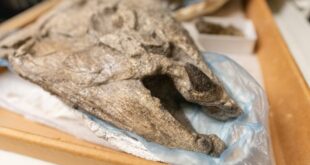By Dhruv Mehrotra and Dell Cameron
Sep 20, 2023 3:20 PM
The Gruesome Story of How Neuralink’s Monkeys Actually Died

Fresh allegations of potential securities fraud have been leveled at Elon Musk over statements he recently made regarding the deaths of primates used for research at Neuralink, his biotech startup. Letters sent this afternoon to top officials at the US Securities and Exchange Commission (SEC) by a medical ethics group call on the agency to investigate Musk’s claims that monkeys who died during trials at the company were terminally ill and did not die as a result of Neuralink implants. They claim, based on veterinary records, that complications with the implant procedures led to their deaths.
Musk first acknowledged the deaths of the macaques on September 10 in a reply to a user on his social networking app X (formerly Twitter). He denied that any of the deaths were “a result of a Neuralink implant” and said the researchers had taken care to select subjects who were already “close to death.” Relatedly, in a presentation last fall Musk claimed that Neuralink’s animal testing was never “exploratory,” but was instead conducted to confirm fully formed scientific hypotheses. “We are extremely careful,” he said.
Public records reviewed by WIRED, and interviews conducted with a former Neuralink employee and a current researcher at the University of California, Davis primate center, paint a wholly different picture of Neuralink’s animal research. The documents include veterinary records, first made public last year, that contain gruesome portrayals of suffering reportedly endured by as many as a dozen of Neuralink’s primate subjects, all of whom needed to be euthanized. These records could serve as the basis for any potential SEC probe into Musk’s comments about Neuralink, which has faced multiple federal investigations as the company moves toward its goal of releasing the first commercially available brain-computer interface for humans.
The letters to the SEC come from the Physicians Committee for Responsible Medicine, a nonprofit striving to abolish live animal testing. The group claims that Musk’s comments about the primate deaths were misleading, that he knew them “to be false,” and that investors deserve to hear the truth about the safety, “and thus the marketability,” of Neuralink’s speculative product.
“They are claiming they are going to put a safe device on the market, and that’s why you should invest,” Ryan Merkley, who leads the Physicians Committee’s research into animal-testing alternatives, tells WIRED. “And we see his lie as a way to whitewash what happened in these exploratory studies.”
Musk’s post on X about Neuralink’s monkeys has been viewed more than 760,000 times, and the Physicians Committee notes in its letters that when the SEC charged Musk with securities fraud related to Tesla in 2018, the agency argued that his account was a source of investor news. The SEC has jurisdiction over the sale of any securities, including those offered by privately held companies such as Neuralink. Recent filings show the company has raised more than $280 million from outside investors.
The SEC declined WIRED’s request to comment on the Physicians Committee’s letters. Neuralink did not respond to specific questions about Musk’s claims or a request for comment about the Physicians Committee’s allegations.
Within a year of its reported founding in March 2017, Neuralink acquired a large number of animal subjects to test its brain-chip implants. From September 2017 until late 2020, the company’s experiments were aided by the staff of the California National Primate Research Center (CNPRC), a federally funded bioresearch facility at UC Davis. Musk’s promise was to revolutionize prostheses and engineer an implant that would allow human brains to communicate wirelessly with artificial devices, and even each other.
UC Davis veterinary records cited by the Physicians Committee—which WIRED also obtained through a subsequent California public records request—chronicle a battery of complications that developed following procedures involving electrodes being surgically implanted into monkeys’ brains. The complications include bloody diarrhea, partial paralysis, and cerebral edema, a condition colloquially known as “brain swelling.”
For example, in an experimental surgery that took place in December 2019, performed to determine the “survivability” of an implant, an internal part of the device “broke off” while being implanted. Overnight, researchers observed the monkey, identified only as “Animal 20” by UC Davis, scratching at the surgical site, which emitted a bloody discharge, and yanking on a connector that eventually dislodged part of the device. A surgery to repair the issue was carried out the following day, yet fungal and bacterial infections took root. Vet records note that neither infection was likely to be cleared, in part because the implant was covering the infected area. The monkey was euthanized on January 6, 2020.
Additional veterinary reports show the condition of a female monkey called “Animal 15” during the months leading up to her death in March 2019. Days after her implant surgery, she began to press her head against the floor for no apparent reason; a symptom of pain or infection, the records say. Staff observed that though she was uncomfortable, picking and pulling at her implant until it bled, she would often lie at the foot of her cage and spend time holding hands with her roommate.
Animal 15 began to lose coordination, and staff observed that she would shake uncontrollably when she saw lab workers. Her condition deteriorated for months until the staff finally euthanized her. A necropsy report indicates that she had bleeding in her brain and that the Neuralink implants left parts of her cerebral cortex “focally tattered.”
Yet another monkey, Animal 22, was euthanized in March 2020 after his cranial implant became loose. A necropsy report revealed that two of the screws securing the implant to the skull loosened to the extent that they “could easily be lifted out.” The necropsy for Animal 22 clearly states that “the failure of this implant can be considered purely mechanical and not exacerbated by infection.” If true, this would appear to directly contradict Musk’s statement that no monkeys died as a result of Neuralink’s chips.
Shown a copy of Musk’s remarks on X about Neuralink’s animal subjects being “close to death already,” a former Neuralink employee alleges to WIRED that the claim is “ridiculous,” if not a “straight fabrication.” “We had these monkeys for a year or so before any surgery was performed,” they say. The ex-employee, who requested anonymity for fear of retaliation, says that up to a year’s worth of behavioral training was necessary for the program, a time frame that would exempt subjects already close to death.
A doctoral candidate currently conducting research at the CNPRC, granted anonymity due to a fear of professional retaliation, likewise questions Musk’s claim regarding the baseline health of Neutralink’s monkeys. “These are pretty young monkeys,” they tell WIRED. “It’s hard to imagine these monkeys, who were not adults, were terminal for some reason.”
“We have no comment to make regarding Elon Musk’s statements,” Andy Fell, a spokesperson for the Davis campus, tells WIRED.
If the SEC does investigate Musk’s comments, it would mark at least the third federal probe linked to Neuralink’s animal testing. In December 2022, Reuters reported that the US Department of Agriculture’s Office of Inspector General had launched a probe into Neuralink’s treatment of some animal test subjects. In February 2023, the US Department of Transportation opened an investigation into Neuralink over allegations of unsafe transport of antibiotic-resistant pathogens.
These investigations followed the US Food and Drug Administration initially rejecting Neuralink’s application, in early 2022, for approval to conduct in-human clinical trials. According to Reuters, the agency’s major concerns involved the device’s lithium battery, as well the possibility that the implant’s wires might migrate to other parts of the brain. This May, the FDA gave the company approval for human trials.
Those human trials could begin soon. Yesterday, Neuralink announced that it had received approval from an independent review board to begin a study aiming to enable people with paralysis to control a computer keyboard or cursor with their thoughts.
Updated at 4:50 pm ET, September 20, 2023, to reflect that it is unclear from the vet records related to “Animal 20” whether the term “survivability” refers to the implant or the test subject.
Get More From WIRED
Grace Browne
Morgan Meaker
Caitlin Harrington
Khari Johnson
Joel Khalili
Lauren Goode
Matt Laslo
Camille Bromley
*****
Credit belongs to : www.wired.com
 MaharlikaNews | Canada Leading Online Filipino Newspaper Portal The No. 1 most engaged information website for Filipino – Canadian in Canada. MaharlikaNews.com received almost a quarter a million visitors in 2020.
MaharlikaNews | Canada Leading Online Filipino Newspaper Portal The No. 1 most engaged information website for Filipino – Canadian in Canada. MaharlikaNews.com received almost a quarter a million visitors in 2020.
















